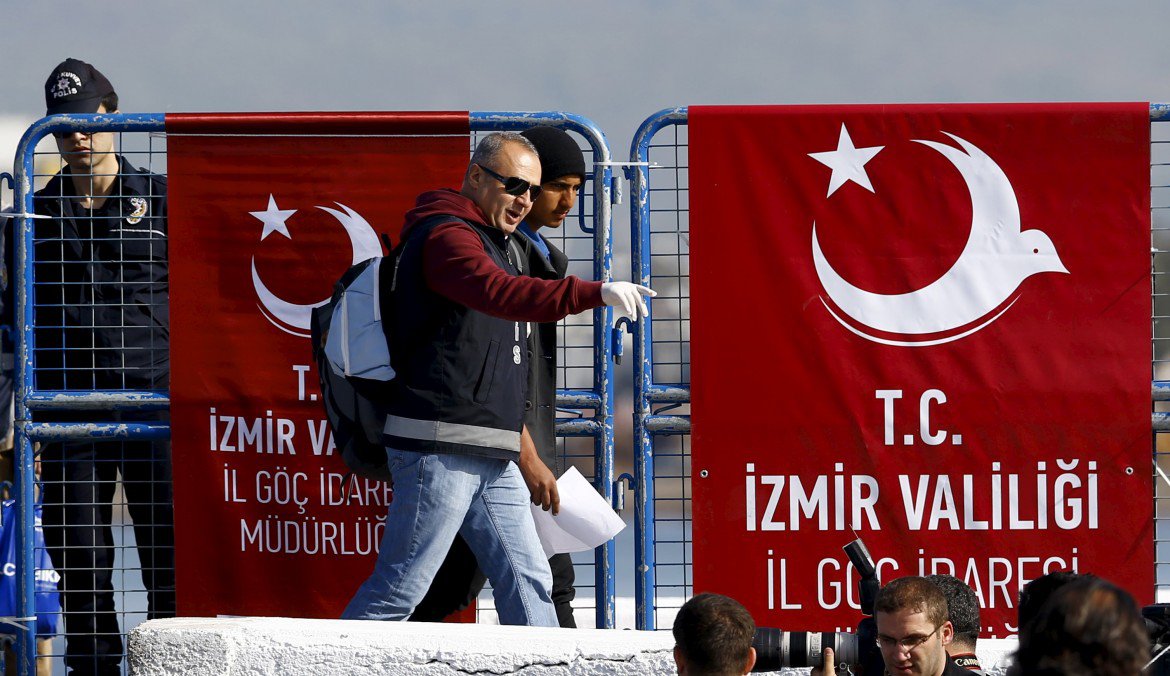Analysis
Greek asylum board rattles E.U. agreement, calling Turkey ‘unsafe’
After a Syrian refugee challenged his return to Turkey, a Greek asylum appeals board granted his request for a re-examination of his claim.

It is a decision with a strong symbolic and practical meaning: The appeals committee responsible for processing complaints of migrants and refugees granted the request of a Syrian refugee who contested his compulsory return to Turkey after arriving in Lesbos in March.
The Syrian was initially denied asylum, and was forced to go back to Turkey. The most interesting thing to point out is that the Board of Appeal made clear that Turkey cannot be considered a “safe third country,” and therefore the asylum application will be examined again with more data and details.
The proceedings will certainly take time, but the message from the board could have far wider repercussions. If Turkey is considered an unsafe country, it could lead to a challenge — at least in principle — of the European Union’s agreement with Ankara as a whole, taking into account that the rights and living conditions of refugees must be an absolute priority.
At Lesbos, in the meantime, the service responsible for the granting of asylum applications has examined one hundred and seventy requests of Syrian refugees and migrants, a hundred of which were accepted. These are cases of citizens politically persecuted who are fleeing war, who will be able to establish themselves on the Greek mainland, for now.
As the Greek press emphasized, the remaining 74 cases in which asylum was not granted will make a clear reference to the decision in question in their appeals, and to Turkey’s position as an unsafe country, in terms of human rights, religious and minority rights. And it is to be considered quite likely that the same logic, with regard to the status of Turkey, will be applied again, on several occasions by the Board of Appeals.
According to the latest official data, there are 54,230 refugees in Greece, and for now, the vast majority of expulsions concern citizens who arrived in Greece after the onset of the Turkey-E.U. agreement and who have not sought asylum. In the Idomeni camp, however, there are still more than 9,000 people. Giorgos Kyritsis, the Greek spokesman on migration issues, said that within two weeks all refugees should be able to move to other locations in northern Greece, with new accommodations.
As for the living conditions of refugees, the European Commission decided Friday to grant Greece aid of €56 million (a drop in the bucket compared to €6 billion granted to Turkey) to speed up the identification procedures, reception of asylum applications and improvement of facilities. In total, since the beginning of 2015, Athens has received €237 million as urgent aid for emergency assistance to migrants and refugees.
In this context, Friday morning 22 migrants and refugees voluntarily returned from the northern Aegean islands to Turkey. The numerical data clearly shows that the will of the overwhelming majority of people who left behind wars and persecution is to be able to remain in Europe, in the hope of building a free and dignified future.
On Monday, finally, Prime Minister Alexis Tsipras will meet in Istanbul with the Turkish President Recep Tayyip Erdogan, and it is obvious that the main topic of the visit will be on the issue of refugees and the implementation of the agreement between the European Union and Ankara. Athens is somehow obligated to keep the path of dialogue open, since it is clear that Turkey can’t play the refugee card to command more concessions from Europe forever. And the first country that will pay the price of new migration, encouraged by the Turks, would, of course, be Greece.
On the other side, however, according to Greek government sources, there is also a palpable concern for the future moves of the Ankara “neo-Sultan,” especially after the departure of former Prime Minister Ahmet Davutoglu, who seemed to be trying to counterbalance the increasingly strong anti-European instincts of his country.
Originally published at http://ilmanifesto.info/lautorita-greca-sui-rifugiati-fa-tremare-accordo-ue-turchia-paese-non-sicuro/ on 2016-05-21
